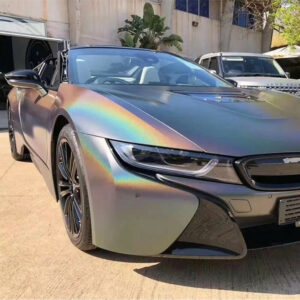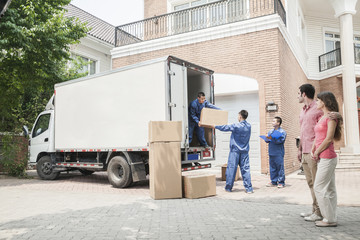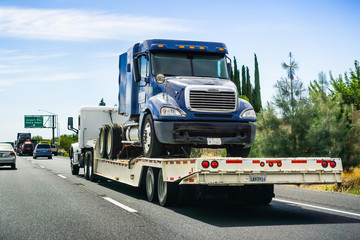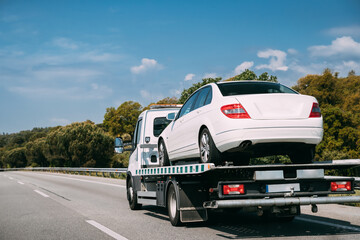Sarasota Car Wraps are a great way to draw attention to your company’s message or logo. They also provide a cost-effective alternative to repainting.

Car wraps come in an almost endless array of colors and designs. They can even mimic other materials like carbon fiber and leather. However, finding a shop with an experienced team is key.
Car wraps offer the ability to transform your vehicle with a unique, customized, and permanent look. They are an excellent choice for promoting your business or brand, offering much more flexibility than painted graphics or traditional vinyl lettering for vehicles. They also provide an extra layer of protection to your paint job from the hostile elements like UV exposure, bird droppings, hard water deposits, road salt, tree sap, and more. They can also be easily removed, allowing you to return your car to its original condition.
The color and design of your wrap can be as simple or complex as you want. Bold colors can convey a sense of energy or power while more neutral hues can promote a professional, elegant image. A wrap’s colors should also coordinate with the accents on your vehicle like wheels, badges, and windows. For example, a sleek sports car could benefit from wrap colors that match the red brake calipers or wheels. Conversely, an SUV would look great with wrap colors that complement its rugged features.
Once you have decided on a design or style, your installer will prepare the vehicle for application. This includes a thorough wash and possibly a power wash in order to ensure that the surface is smooth. The shop may also remove the bumper covers, headlights, and taillights in order to access difficult areas for better application.
Wraps come in many different finishes and textures, from glossy or matte to brushed or carbon fiber. Regardless of the texture, your wrap can be printed with anything from a simple graphic to a full-color photo. Some even have a textured finish that can be felt when you run your hand over it.
Aside from the visuals, the durability of your wrap is important as well. Most car wraps are rated to last five years or more without fading, chipping, or peeling. They are also easy to maintain, as they simply require washing with mild pH-balanced soap and water. They can also be repaired if they get scratched or damaged. This makes them a wise investment for drivers who are interested in changing their car’s appearance but want to safeguard their original paint.
Vinyl Finishes
The color and design elements of your car wrap are important, but you should also consider the finish. The type of finish will affect how long the wrap lasts, how it looks and feels to the touch, and whether it is suitable for your vehicle. There are several different finishes available, including gloss, matte, metallic and textured vinyls. Each of these finishes has a distinct visual and tactile effect that can make your vehicle stand out.
Matte gunmetal gray, for example, has a non-reflective matte texture and muted hue that exudes robust modernity. Glossy black, on the other hand, is a classic that exudes a subtle allure and sophisticated charm. And glossy metallic vampire red evokes a daring essence that captivates observers.
Unlike paint, which is typically solid or two-toned (for that popular two-toned look), car wraps can be customized with a wide range of imagery, graphics and text. Moreover, they can protect the original paintwork by acting as a barrier against scratches, fading and other environmental damage. They can even be removed without damaging the paint underneath, allowing for easy restoration or change of appearance in the future.
When deciding on a wrap, you must first decide whether you want the wrap to cover your entire car or just a section. This will influence how much it costs, as well as the amount of work needed to prep your vehicle for the application. It is important to note that a wrap will not hide imperfections on your existing car, such as dings and scratches, so it’s best to get these repaired before applying the wrap. Likewise, rust or chipped paint can cause the decals to adhere poorly.
Depending on the material and quality, a wrap can last 2-10 years, or longer if properly cared for. Storing your vehicle indoors overnight, not parking under trees, such as maple or elm, that drop sap and keeping the vehicle out of direct sunlight will all help extend the lifespan of a wrap.
Installation
Whether you’re an individual who wants to enhance the appearance of your vehicle or a company seeking to promote its brand, car wraps offer a cost-effective alternative to painting your vehicles. Car wrapping can also be quicker to apply, which allows you to get your vehicles back on the road sooner. However, it’s important to know the process of car wrapping to ensure that you receive a high-quality finished product.
Before applying a car wrap, the shop that’s doing it will thoroughly clean the surface. This includes using a degreaser to remove any impurities, which could affect the adherence of the vinyl. This also enables the installer to easily work around and through obstacles like door handles, mirrors, and trims. In addition, it’s important that the shop works on a warm day, as vinyl and adhesive work best at about 68 degrees.
Once the vehicle has been cleaned, it’s recommended to let the wrap dry. This may take a few hours. During this time, the installer will likely dismantle the vehicle, including removing the bumpers, headlights, and taillights. This enables the installer to reach hard-to-reach areas and tuck the vinyl into the contours of the body panels. It’s also crucial that any hindrances are removed, as vinyl can easily tear or peel if it’s caught on something.
The next step is to design the wrap. This can be done by hiring a graphic designer or using a template provided by the wrap manufacturer. It’s important that the design fits properly to scale and that it matches the printer file requirements of the wrap material. The designer should also Photoshop the design onto a photo of the vehicle to check for any issues.
Once the design has been approved, it’s time to print the wrap. This is typically done by a large-format printer that can handle the dimensions of the vehicle. Once the wrap has been printed, it’s applied to the vehicle by a team of skilled installers. This can take a few hours, but it’s essential that the installation is completed correctly to prevent bubbles and wrinkles.
Maintenance
Car wraps can be more durable than a paint job, but they can still be damaged by weather and road debris. It is important to get any damage fixed as soon as possible to prevent it from worsening over time and compromising the integrity of the wrap.
The easiest way to protect your car wrap is to keep it clean. Washing it regularly with a gentle soap solution will help remove dirt and road grime. You should avoid using harsh chemicals or abrasive tools that could damage the wrap. If you do need to use a chemical cleaner, test it on a small section of the wrap before applying it to your entire vehicle.
Regularly waxing your vehicle will also help to maintain its appearance and prolong the life of the wrap. However, the most important step is to ensure that the body of your vehicle is free of cracks and chips. These can scratch the surface of your wrap, causing it to lose its sheen and dull in color.
Another thing to remember is to be careful when driving your car. It is not a good idea to take it off-road or on gravel roads, and you should slow down when driving over potholes and other uneven surfaces. The sharp edges of rocks and pebbles can easily scratch a vinyl car wrap.
Car wraps are an excellent choice for personalizing your vehicle or promoting a business. They offer a more cost-effective and versatile option than painting. In addition, they can be quickly and easily removed if you decide to sell your vehicle or return it to its original state. A new paint job, on the other hand, will likely decrease your resale value because potential buyers are unlikely to want an unconventional color.
It is also worth noting that wrapping your car is a much faster process than painting it. While a paint job can take days, a car wrap will usually be completed within hours. This is especially true if the car has been pre-wrapped by an experienced team of professional installers.



